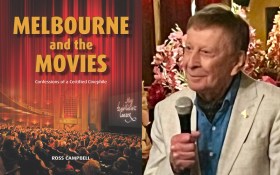Image by NCAT alumnus Wade Jeffree
Northern College of the Arts & Technology (NCAT) is proving to offer tangible pathways for the creatively inclined.
Recognising so few people are given the space to exercise their creative potential in their day jobs, NCAT is seeing a rush of short course enrolments from those feeling disconnected from their creativity.
‘Many mature age students have had creative backgrounds, but have lost direction along the way and want to rediscover their passion for creativity, explains Mark Russell of NCAT.
‘We’ve got an amazing array of participants coming in – from parents to professionals; people who have decided that what they’re currently doing is a unfulfilling and uninteresting and they want to pursue their own creativity.’
When assessing the quality of a college or course, often some of the greatest insights can be found in the success of its alumni, whether that in is Visual Arts, Design, Music or Photography.
For the Northern College of the Arts & Technology (NCAT), there is no better indication of its ability to nurture creative talent than that of Wade Jeffree, who undertook the Folio Preparation course in Visual Art. Now based in New York, the designer has gone on to work with industry great Stefan Sagmeister.
Jeffree is not alone. Offering short courses and full-time diplomas spanning visuals arts, design, photography, music and more, graduates are renowned for their skills and dedication to further study, with universities known to seeking out NCAT students for scholarship opportunities.
From school leavers to mature age students, NCAT attracts a variety of students looking to further their creative development. Whether it be catering to those looking to up skill, or explore their potential with an introduction to the arts, NCAT proves age and experience are no barrier.
For those in high school who are passionate about where they can take their skills, NCAT offers specialised training and pathways across the arts from year 10 through to diploma.
Tuition costs can also be a significant roadblock to education, especially to those already paying off a degree or with a family. With accessibility at its core, students are only required to cover material costs.
For Russell, this is an inspiring situation to be in as an educator, opening up study to anyone with a passion and a dispelling the limiting belief that there is a cut-off age for further study.





